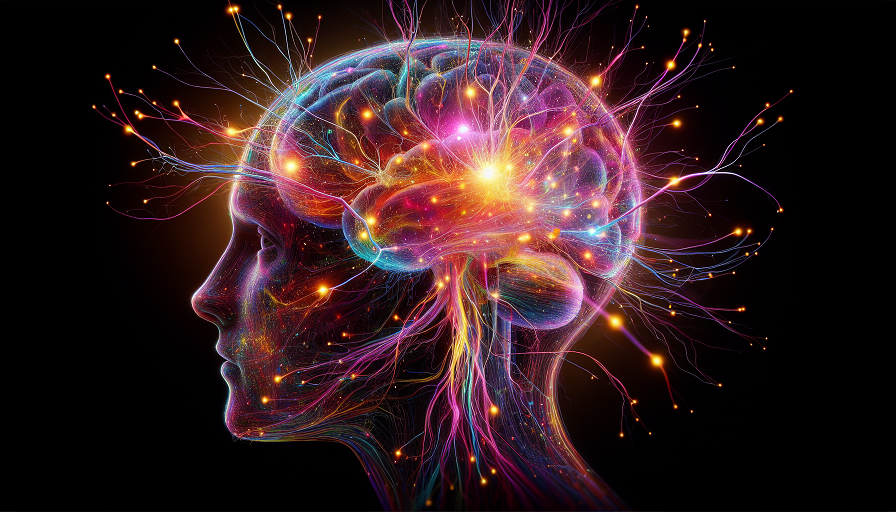
In today’s digital age, our relationship with technology is constantly evolving. From smartphones to smart homes, our lives are intertwined with digital tools designed to make tasks easier. But as we rely more on artificial intelligence (AI) for cognitive tasks, a new question emerges: Are we outsourcing our minds?
Contents
The Role of Memory in Our Daily Lives
Memory is crucial to how we function daily. It allows us to recall essential facts, manage our schedules, and even remember our loved ones’ birthdays. Our memory shapes our identity, guiding our decisions based on past experiences. Yet, as our dependence on technology grows, we’re witnessing a significant shift in how we use our brains.
How AI Tools Are Reshaping Memory
AI advancements have introduced tools that transform the way we remember information. Consider your smartphone, which acts as a personal assistant, reminding you of appointments and tasks. Maps apps have replaced the need to remember routes, while search engines deliver answers to even the most complicated questions within moments.
Digital Note-Taking and Organization
One area where we’re relying heavily on AI is in digital note-taking and organization. Apps like Evernote and Microsoft OneNote employ AI-driven algorithms to categorize and suggest notes based on context. This powerful feature aids in organizing data quickly but also reduces our need to commit information to memory. The more we rely on these systems, the less we exercise our natural memory skills.
Virtual Assistants
Virtual assistants such as Siri, Alexa, and Google Assistant provide convenience by answering questions, setting reminders, and controlling smart devices. They’ve become everyday problem-solvers, reducing the need for us to internalize information. With everything a simple voice command away, we are sparing our brains from remembering too much, but what does it mean for our long-term brain health?
Benefits and Drawbacks of Outsourcing Memory to AI
While the benefits of AI tools are undeniable, there’s a need to consider the downsides. We are trading off our brain’s natural capacity to adapt and recall by letting technology shoulder the burden. While this outsourcing frees our minds for more creative and emotional processing, it may also make us more dependent on technology and less capable of functioning independently.
Enhanced Mental Capacity
On the positive side, AI tools enhance our productivity by ensuring accuracy and efficiency with tasks that traditionally required concentration and memory. This efficiency allows people to focus on complex and creative tasks, potentially leading to new innovations and breakthroughs.
Potential Cognitive Decline
However, excessive reliance on AI might contribute to cognitive decline over time. Just as muscles require exercise to grow stronger, our brain needs challenges to maintain its function. By continually using AI as a mental crutch, we risk under-exercising our cognitive abilities.
So, Are We Outsourcing Our Minds?
The concept of outsourcing our minds is especially pertinent considering the modern digital landscape. While AI significantly aids and simplifies our lives, it’s crucial to balance our tech dependency with mental exercises that challenge and grow our cognitive abilities.
The Role of Nootropics in Supporting Brain Health
While AI can support some cognitive functions, others turn to nootropics or brain supplements to enhance memory and other aspects of brain performance. These substances are claimed to boost concentration, improve focus and aid short-term recall. However, relying on supplements for brain health also introduces concerns about long-term reliance and understanding of natural cognitive abilities.
Embracing a Healthy Balance
Balancing technology use with natural cognitive practices creates a healthy environment for memory and brain health. Strategies like pursuing physical exercise, maintaining strong social ties, and engaging in memory-enhancing games can help preserve brain function. Setting intentional “no-tech” times might also help strengthen personal memory skills.
Mindfulness and Relaxation
Practicing mindfulness and relaxation techniques can help reduce cognitive overload while promoting memory retention. Meditation, yoga, and deep-breathing exercises are simple practices that support mental clarity and reduce reliance on technology-driven prompts.
Future Implications and Ethical Considerations
As AI technology continues to evolve, its impact on human memory and cognitive functions will be a significant focus of both technological and ethical discussions. The development of increasingly sophisticated AI tools raises questions about privacy, data ownership, and the potential for technology to influence or manipulate behavior and decision-making.
Data Privacy Concerns
With AI tools often requiring access to personal information to function optimally, such as calendar entries or frequently communicated contacts, concerns about data security and privacy are prevalent. Users need to be aware of how their information is stored and used, ensuring that they retain control over their personal data while still benefiting from the convenience these tools offer.
Impact on Education
Educational institutions are also grappling with the integration of AI in teaching and learning environments. While AI can personalize and enhance learning experiences, it is crucial to ensure that students still develop critical thinking and problem-solving skills without over-reliance on technology. Educators are challenged to find opportunities where AI can complement rather than replace traditional learning methodologies.
Looking Ahead
As we move forward into a future that promises further technological integration into our daily routines, ongoing research and thoughtful discourse on AI’s role in cognitive processes and memory retention will be essential. Policymakers, educators, technologists, and individuals alike must participate in these conversations to navigate the complex interplay between human intelligence and artificial capability.
Tthe balance between leveraging AI for convenience and maintaining a robust, independent mental framework is delicate but achievable. Striving for a future where technology and human capacity coexist harmoniously will require innovation, ethical mindfulness, and a commitment to nurturing the natural potential of the human mind.

